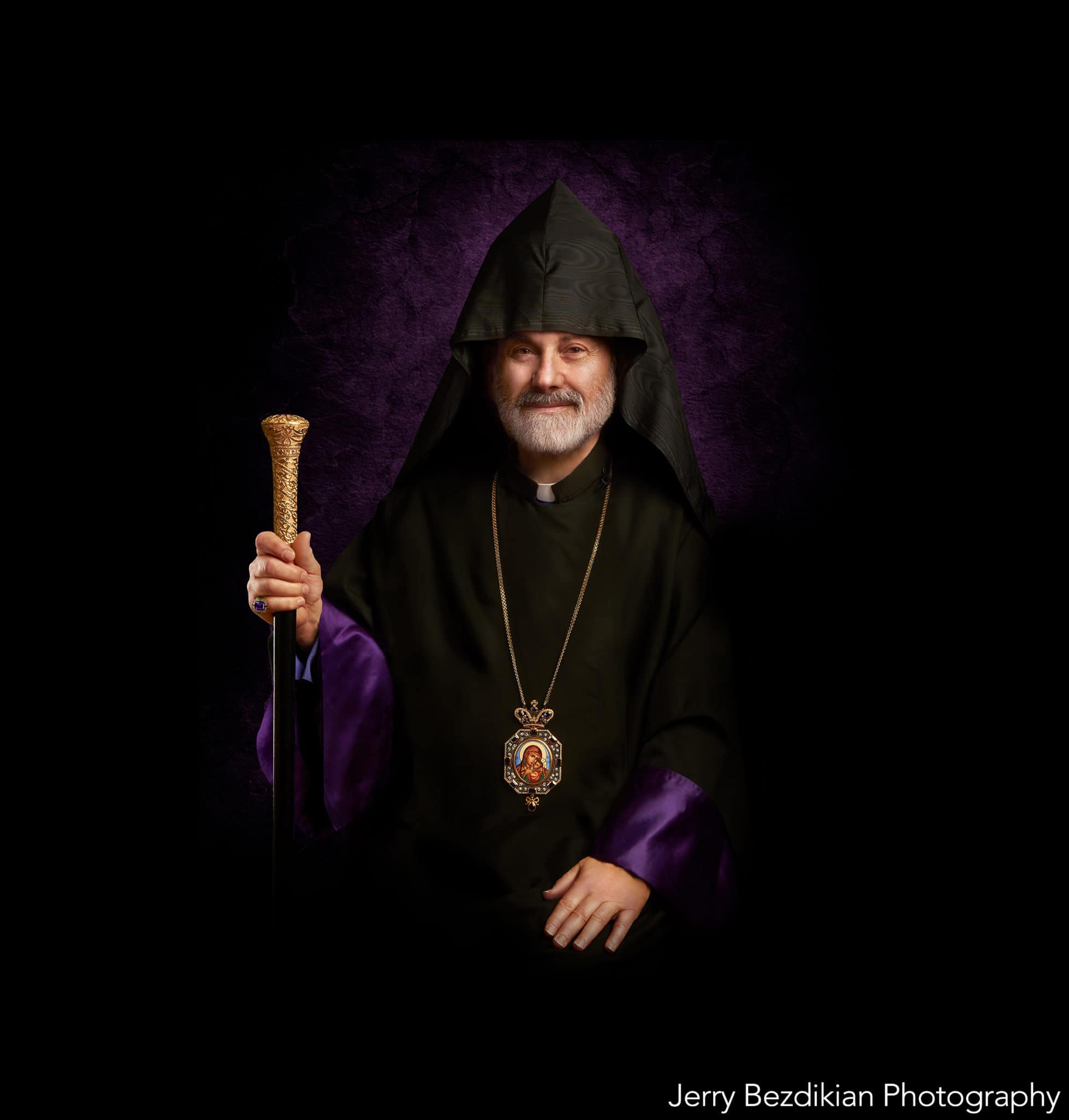The Prelate’s Sermon, Sunday, June 12
Today, on the second Sunday of Pentecost, the Gospel reading is from Saint Luke 4:25-30. Jesus makes reference both to Prophet Elijah and to his disciple Elisha. Jesus refers to Elijah who restores the life of the son of a widow in Sidon, Lebanon, and to Elisha who heals an Assyrian commander who was suffering from leprosy. The message of these two references, even though they come across as a rebuke, nevertheless is an invitation to the audience which was proud of their ancestral roots.
Elijah was the prototype of Jesus as we read in the Gospel according to Matthew 16:14. Hence, I would like to share a few thoughts from an encounter of the Almighty Lord with His faithful prophet Elijah as our daily spiritual bread. In the First Book of the Kings, we read that Elijah after the victorious event challenging King Ahab and the priests of Baal (1 Kings 19:9-18), flees to a cave and isolates himself inside because he was persecuted by Queen Jezebel. The Lord commands him and says, “Go forth and stand on the mountain before the Lord. And behold, the Lord was passing by! And a great and strong wind was rending the mountains and breaking in pieces the rocks before the Lord; but the Lord was not in the wind. And after the wind an earthquake, but the Lord was not in the earthquake. After the earthquake a fire, but the Lord was not in the fire, and after the fire a sound of a gentle blowing. When Elijah heard it, he wrapped his face in his mantle and went out and stood in the entrance of the cave. And behold, a voice came to him and said, “What are you doing here, Elijah?” Then he said, “I have been very zealous for the Lord, the God of hosts; for the sons of Israel have forsaken Your covenant, torn down Your altars and killed Your prophets with the sword. And I alone am left; and they seek my life, to take it away.”
This passage depicts an awesome manifestation of the Almighty Lord, and it brings a fresh and inspiring message to all faithful in their daily life
- The Prophet was threatened with death right after bringing the solid sign to his people that Jehovah is the only true and omnipotent God who hears our prayers and responds. Many of us may have gone through a similar sad experience, when our kind and gentle words, deeds and behavior can be interpreted negatively, and within our frustration we may question the providential care of the Lord. It is true that life is not always fair, as an Armenian popular poem describes, “I planted roses but collected only thorns.” Nevertheless, we should never fail in our positive thinking, which we can practice when with unshakeable trust we commit ourselves to God.
- The cave as much as it stands for security is also a metaphor for introspection. The mountains with their height and space stand for majesty, magnetism, and the natural beauty. Nevertheless, the cave is cut off from the world, and stretching in the bosom of the mountains, is full of beauties, treasures, and mysteries. Within the context of our meditation the cave symbolizes the inner world of humanity. Our Lord Jesus Christ very clearly taught us that “the kingdom of God is in us”, and the more that we create opportunities to be isolated from the world and to spend precious time in our cave, i.e. our inner world, it may tremendously enrich our entire life.
- Elijah’s words that he “alone was left” is the common way we think and feel when we are frustrated. It is true that we may neglected, misunderstood, and even persecuted, yet we should never feel alone, for the Almighty God with His Celestial Hosts is with us. Joseph was lowered by his brothers into the pit (Gen 37:12-28), Daniel was cast into the lions’ den (Daniel 6:1-22), the three youth were thrown into the fiery furnace (Daniel 3:16-30), Saint Gregory the Illuminator was thrown into the deep dungeon, and in all cases God’s Angel comforted, strengthened, and ultimately delivered them through the Almighty Lord’s providential care.
- God promises to meet Elijah, and three natural phenomena happen: first the storm; second, the earthquake; and finally, the gentle breeze. Elijah’s expectation, which I think is the general way of human thinking, is that God would reveal His presence through either the storm or the earthquake, which befit to His awesome power, as we read in the examples of the burning bush (Ex 3:1-17), the deliverance of the Law on Mount Sinai (Ex 19:18), and the punishment of Korah, Dathan, and Abiram (Numbers 16:15-40). But to Elijah, God reveals Himself quietly through a gentle breeze, thus giving us the clear message that “My thoughts are not yours, nor are your ways My ways” (Isaiah 55:8-9).
With the Prophet Elijah, let us all be sure that whenever we deliver the message of the Omnipotent God, even if the world does not accept but rather persecutes us, then we should never be deceived into thinking that we are alone or abandoned. Rather, let us be confident that we are the true followers of the One who says: “If they persecuted me they will persecute you also” (Jn 15:20), and through our testimony, let us forever praise the All-Holy Trinity. Amen.

